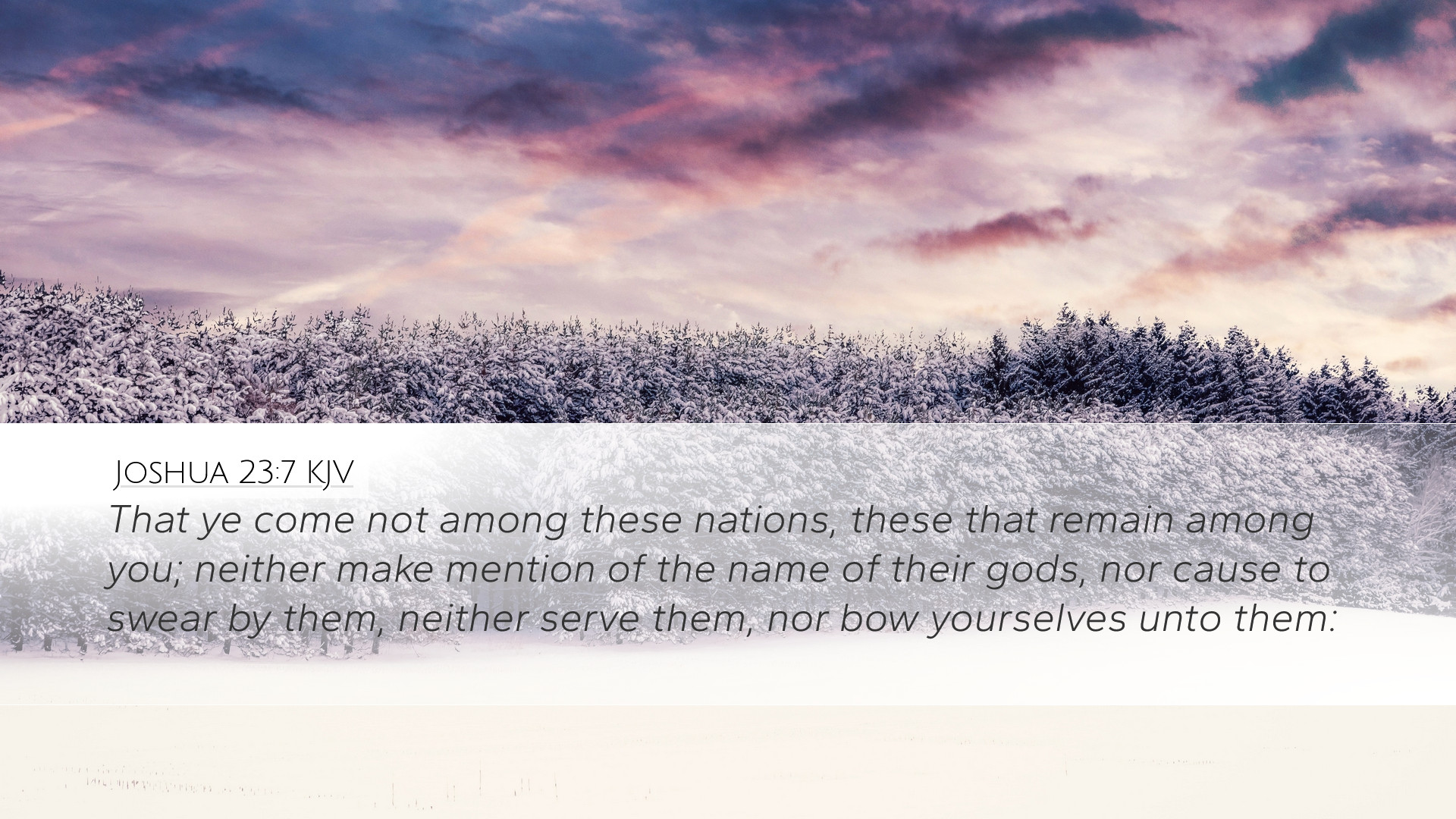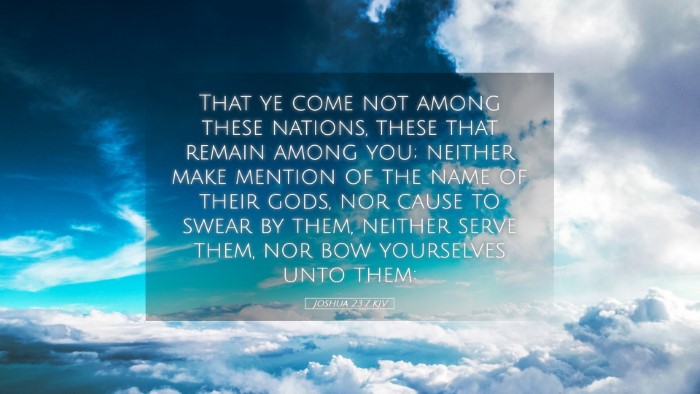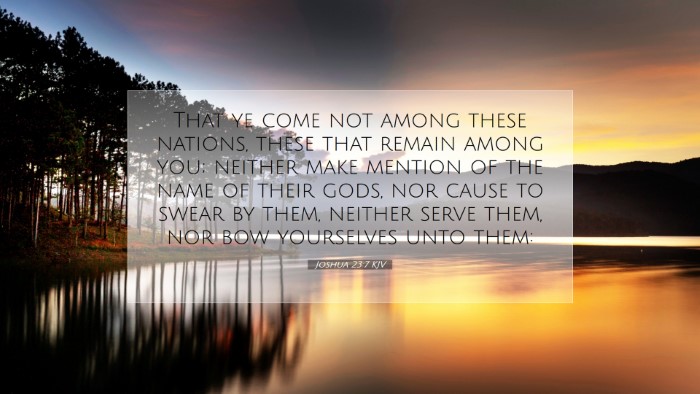Old Testament
Genesis Exodus Leviticus Numbers Deuteronomy Joshua Judges Ruth 1 Samuel 2 Samuel 1 Kings 2 Kings 1 Chronicles 2 Chronicles Ezra Nehemiah Esther Job Psalms Proverbs Ecclesiastes Song of Solomon Isaiah Jeremiah Lamentations Ezekiel Daniel Hosea Joel Amos Obadiah Jonah Micah Nahum Habakkuk Zephaniah Haggai Zechariah MalachiJoshua 23:7
Joshua 23:7 KJV
That ye come not among these nations, these that remain among you; neither make mention of the name of their gods, nor cause to swear by them, neither serve them, nor bow yourselves unto them:
Joshua 23:7 Bible Commentary
Bible Commentary on Joshua 23:7
Verse: "And that ye come not among these nations, these that remain among you; neither make mention of the name of their gods, nor cause to swear by them, neither serve them, nor bow yourselves unto them." (Joshua 23:7)
Introduction
This passage is an essential aspect of Joshua’s final address to the people of Israel before his death. It underscores the importance of remaining faithful to God amidst the influences of surrounding cultures and religions. This commentary synthesizes insights from renowned public domain commentators including Matthew Henry, Albert Barnes, and Adam Clarke, providing a robust examination of the theological implications and practical applications of this verse.
Exegesis of the Text
1. The Context of Joshua’s Charge: Joshua, serving as a mediator between God and the Israelite people, issues this admonition towards the end of his leadership. As suggested by Matthew Henry, Joshua seeks to remind them of the covenant made with God and the consistent theme of obedience throughout their journey.
2. The Warning Against Idolatry: The admonition against mingling with the nations highlights Israel’s vulnerability to idolatry. Albert Barnes emphasizes the gravity with which God regards the worship of other deities. The repeated caution against mentioning the names of their gods reveals the slippery slope of syncretism, which could lead to spiritual compromise.
Theological Implications
1. Exclusivity of Worship: This verse emphasizes monotheism, a central tenet in the Israelite faith. Adam Clarke remarks that the prohibition against swearing by the gods of other nations reflects the exclusive worship demanded by God. Such exclusivity is seen as essential for maintaining the integrity of the covenant relationship between God and His people.
2. The Danger of Cultural Assimilation: The Israelites were surrounded by nations that practiced polytheism. As Matthew Henry elucidates, the mixing of cultural practices, especially religious ones, poses a significant threat to faithfulness. The call to separation serves as a protective measure to preserve their identity as God’s chosen people.
Practical Applications
1. Maintaining Spiritual Vigilance: Modern readers of this verse are called to be vigilant against the encroachments of cultural norms that may lead them away from true worship. As spiritual leaders, pastors must emphasize the need for their congregations to evaluate their practices and beliefs in light of Scripture. The temptation to conform to societal pressures must be met with a steadfast commitment to God's Word.
2. The Role of Community: Joshua’s warning underscores the significance of community in spiritual matters. Christian fellowship should encourage accountability and spiritual growth. The early church exemplified this by sharing their lives and holding one another accountable to the teachings of Christ. Church leaders must foster environments where congregants can support one another in resisting worldly influences.
Conclusion
Joshua 23:7 serves as a vital reminder for believers to safeguard their faith against external pressures. The insights gathered from the public domain commentaries highlight the serious nature of idolatry and the necessity for a dedicated relationship with God. By reflecting on these warnings and embracing a spirit of vigilance and communal responsibility, contemporary believers can remain firm in their commitment to worship the one true God.


